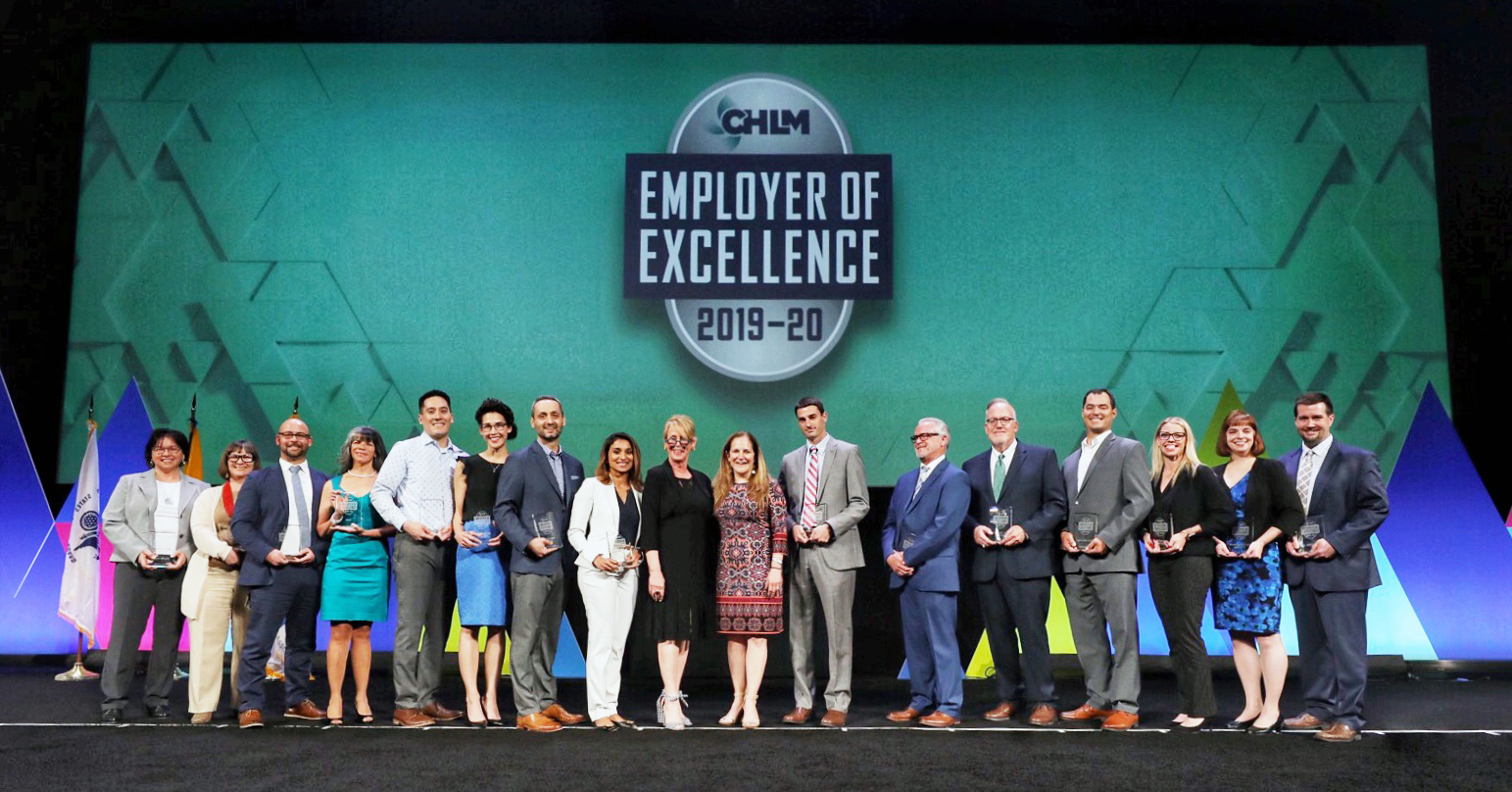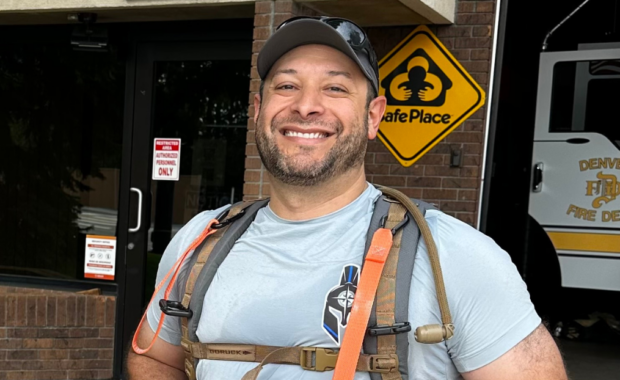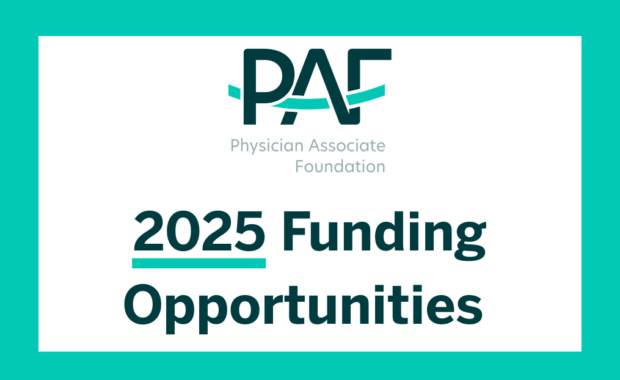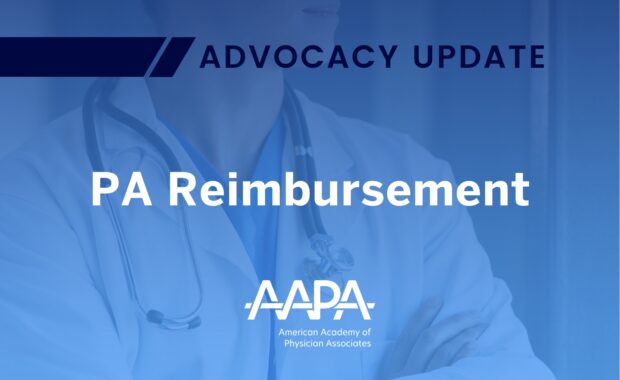Learn About Best APP Models From These Employers
Employers of Excellence Excel at Providing Structure for APPs
January 16, 2020
By Eileen Denne, CAE, APR

How do you recruit and retain the best PA talent at your workplace? Among those with excellent hiring potential are PA employers that have advanced practice provider (APP) structures formed to offer management and leadership opportunities for PAs and NPs.
A joint survey by HealthStream and AAPA’s Center for Healthcare Leadership and Management (CHLM) indicates that among the key drivers of PA engagement are a positive and supportive work environment and the opportunity to provide meaningful input that leads to positive organizational change. CHLM’s Employers of Excellence (EOE) have each demonstrated their commitment to creating PA positive work environments that allow for input through APP structures.
From among the fifteen 2019-2020 Employers of Excellence, here is a look at how organizations put together formal APP structures that help ensure a positive environment for PAs and their patients.
Apply for the 2020-2021 EOE Awards
Comprehensive review of APP practices
Rush University Medical Center in Chicago, Illinois, has more than 400 APPs. During the past 13 years they have been on a transformational journey to elevate PAs to the next level. In 2016, upon conclusion of a 2-year comprehensive review of APP practices, they created the Office of Advanced Practice (OAP), to give structure and oversight to APPs and identified two APPs as new directors. The OAP, led by Director of Advanced Practice, Jennifer Orozco MMS, PA-C, DFAAPA, developed a lead APP role; redesigned compensation; and advocated that PAs be recognized on Rush’s website. The APP Directors were invited to join the medical staff executive committee and now have seats on several key committees across the system. Rush supported an APP Annual Report and created a Director of APP Competency and Education position to lead the APP transition to practice, fellowship and onboarding programs, as well as to spearhead professional development opportunities. Finally, Rush created an Advanced Practice Executive Committee (APEC) to provide a shared governance structure for advanced practice. They also adhere to I CARE values: innovation, collaboration, accountability, respect, and excellence.
Janet Furman, MMS, PA-C, director of APP Competency and Education, OAP, has worked at Rush for seven years. When she started, Furman said PAs and NPs worked in silos. After the leadership structure was developed, APPs had access to leadership training courses and seminars to augment professional growth. With these changes, plus a seat at the table with the medical executive committee and other committees, she said, APP turnover decreased from 38% to 12.1% in two years.
Acceptance of APPs in administration a gradual process
Geisinger, with facilities in central and northeast Pennsylvania and New Jersey, created an APP Council in 2009 with a chief medical officer as chair, and with a PA, NP, and CRNA as directors. The Council now has 25 APPs and its charter is reviewed and revised annually. When the number of PAs at Geisinger doubled to 550, they needed to address recruitment, hiring, onboarding and orientation with development of a robust workflow. They currently hold a high level, two-day New Provider Symposium with mandatory inclusion of physicians and APPs. Acceptance of PAs and other APPs in administration was a gradual process. Having knowledgeable PA/APP leaders at the table on hospital committees, including medical executive and system leadership and operations committees, helped them become more successful. Geisinger now has a structure to promote tenured, experienced APPs to Chief positions; they meet monthly with APP Council Directors.
Beth Baylor, PA-C, chief PA, Geisinger Musculoskeletal Institute, credits her personal career growth, knowledge and leadership development to Geisinger, where she has worked for more than 15 years. She participated in a nine-month strategic leadership development program addressing effectiveness and confidence. According to Baylor, chief PAs are integral to their health care teams. They meet monthly to discuss onboarding, communication, and organizational change and many belong to the APP Council.
Evolving structure for APPs
Like Geisinger, an increase in the number of PA staff at Memorial Sloan Kettering Cancer Center (MSK) coincided with the establishment of department-level leadership roles for PAs, starting with a lead PA for the departments of surgery and medicine. In 2016, hospital leadership provided support for the creation of PA coordinator positions that, along with NP coordinators, were retitled APP managers in 2018. With the APP managers, the PA directors and learning and development team created a six-month training program to meet with needs of new PA coordinators. In February 2019, an APP orientation program launched at MSK to optimize onboarding of newly hired PA and NP staff.
In 2015, an APP task force was charged with proposing optimal care delivery and talent management to senior hospital leaders. The leadership model proposed unified PAs and NPs with an executive director of APPs. The redesigned governance model now includes five APP director positions with approximately four to six APP managers reporting to each director.
MSK’s PA Council chair Francine Osikowicz, MPH, PA-C, who has been at MSK for 14 years, sees the positive results of these organizational changes. She says there are new opportunities for leadership: PAs are now in director roles and oversee APP managers, who are aspiring leaders. PAs have also facilitated involvement on hospital committees and PAs are now involved in research and multidisciplinary symposiums. Development of a 12-member PA Council has created an avenue to demonstrate their skills throughout the institution. The APP executive director oversees PA and NP leadership which encourages collaboration and high-quality cancer care to their patients.
Becoming an employer of choice for APPs
Baylor Scott & White Health (BSWH) in Texas employs an increasing number of PAs and NPs to provide care to its patient population. Their intention of becoming an employer of choice for APPs resulted in creation of an APP task force that includes board members, other physicians, senior APP leaders, and HR. To align the clinical practice across their system, a new BSWH board of governors was formed consisting of physician representatives from the individual clinic boards. The two system APP directors were appointed to this board as voting members and the board is currently working on a 5-year plan for their APP/physician infrastructure, looking at care models, career advancement, APP leadership, and APP compensation.
They have implemented an APP leadership structure that utilizes APP Practice Administrators and APP managers to work with the various service line groups. Each APP has a direct reporting relationship to the respective manager who uses a mentorship model which seeks to onboard and facilitate improved competency and expanded clinical skills. Each of these leaders is mentored by the APP Administrator to facilitate their respective leadership development. BSWH also provides formal leadership training classes to sharpen leadership skills. APP directors are ex-officio members of their respective clinic boards, medical staff APP subcommittee members, clinical staff organization members, ex-officio members of the medical executive committees, and voting members of the BSWH medical group board of governors. An APP Council is comprised of senior APP leaders, other representative APPs, and physician leadership.
Jami McKinney, MPAS, PA-C, lead APP at Hospital Medicine Dallas, is grateful for the support and encouragement she has received from BSWH that has enabled and empowered her and other PAs to take on leadership positions. The new APP governance and management structure, she says, is providing a network for professional leadership, mentorship, and guidance among her PA colleagues. BSWH efforts have helped form a united bond centered around promoting a positive culture for PAs.
Regular meetings to educate and inform
Stanford Health Care in Stanford, California, has a well-developed APP structure. Stanford has a Center for Advanced Practice (CAP) for APPs which produces direction, support, and advocacy. The more than 450 APPs at Stanford are encouraged to participate in the APP General Council and can be elected to leadership positions. The APP General Council promotes positive changes; advocates a career ladder and voluntary clinical leadership programs; sponsors wellness activities and distributes quarterly newsletters. In addition to an APP Onboarding Day, they have a formal two-year mentorship for all new hires that includes didactic experience and focus groups. Their APP one-year transition to practice program provides post-graduate training. Following a survey of the APP workforce, APP staff created a Healthy Steps to Wellness activities for APPs, including a retreat for APPs starting in 2015 with a keynote speaker.
According to Jennifer Hunter, PA-C, with the Adult Congenital Heart Program at Stanford, when she interviewed, she discovered the General Council for APPs which provides a monthly forum where they can ask questions and discuss APP matters. Hunter became a member of the APP Council in 2015 and served first as task force lead and now as co-chair. The APP council has been able to improve aspects of APP roles such as streamlining hiring, credentialing, and onboarding. Helping to educate administrative teams on differences between PAs and advanced practice nurses, Hunter said, helped to shorten onboarding times and increased APP satisfaction. The fact that there was already an organization in place at SHC to help promote PAs at the hospital was exciting and made her decision to choose SHC an easy one.
Apply for 2020-2021 Employer of Excellence Award
Does your organization have APP structures and leadership programs for PAs that should be recognized? Applications will be accepted until Feb. 7, 2020, for the 2020-2021 CHLM Employer of Excellence Award.
Read More
How to Build an APP Leadership Career Pathway in Your Organization
Survey Uncovers Ways Employers Can Enhance the PA Workplace
MidMichigan Demonstrates APP Value Through Leadership
NYU Langone Health Focus on PAs a Game Changer
Eileen Denne is director, Corporate Communications at AAPA. Contact her at [email protected].
Thank you for reading AAPA’s News Central
You have 2 articles left this month. Create a free account to read more stories, or become a member for more access to exclusive benefits! Already have an account? Log in.


